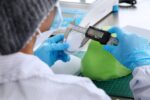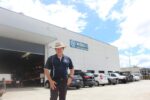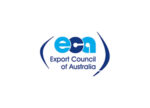The Interview: Kerry Hodges, ADA Bendigo Factory Manager
What is your role at ADA’s Bendigo Factory, and what does this entail? My role as Bendigo Factory Manager requires me to oversee all aspects of production. This includes staff, skills, cutting, equipment, quality , continuous improvement opportunities, safety and anything to ensure our commitments to the customer are met. The factory makes protective apparel for many services and businesses throughout Australian and beyond. It is a huge responsibility due to our diverse customer base – we provide to Australian Defence Force, New Zealand Defence Force, New South Wales Health, Victoria Ambulance, Victoria Police, NSW Police, QLD Fire and Emergency Services, QLD Police, WA Fire and Emergency Services, Victoria Country Fire Authority, Victoria Country Fire volunteers, NSW Wildlands Fire, Toll, Energex, to name a few. What opportunities for career development and growth have you been provided with during your time at ADA? There have been so many opportunities that have been provided to me. I started as a sower in 1988, and then moved into the quality side of production, which involved implementing an accredited Quality System. From there I moved into a supervisory tole, before moving into managing the Bendigo Production Facility. What are the biggest challenges you have faced in the manufacturing industry? Skill shortages is one of the biggest. We lost valuable skillsets when a lot of the companies took their manufacturing offshore. Where I grew up, the area was a thriving sewing manufacturing hub, with businesses such as Stafford Ellison, John Brown, Lacoste, Adidas, and other smaller businesses in operation. Following their closure, people looked at other fields to move into, therefore education and courses on offer were extremely limited and the industry suffered. We were incredibly lucky at that point in time the Australian Defence Apparel (formerly known as Australian Government Clothing Factory) was looking […]










